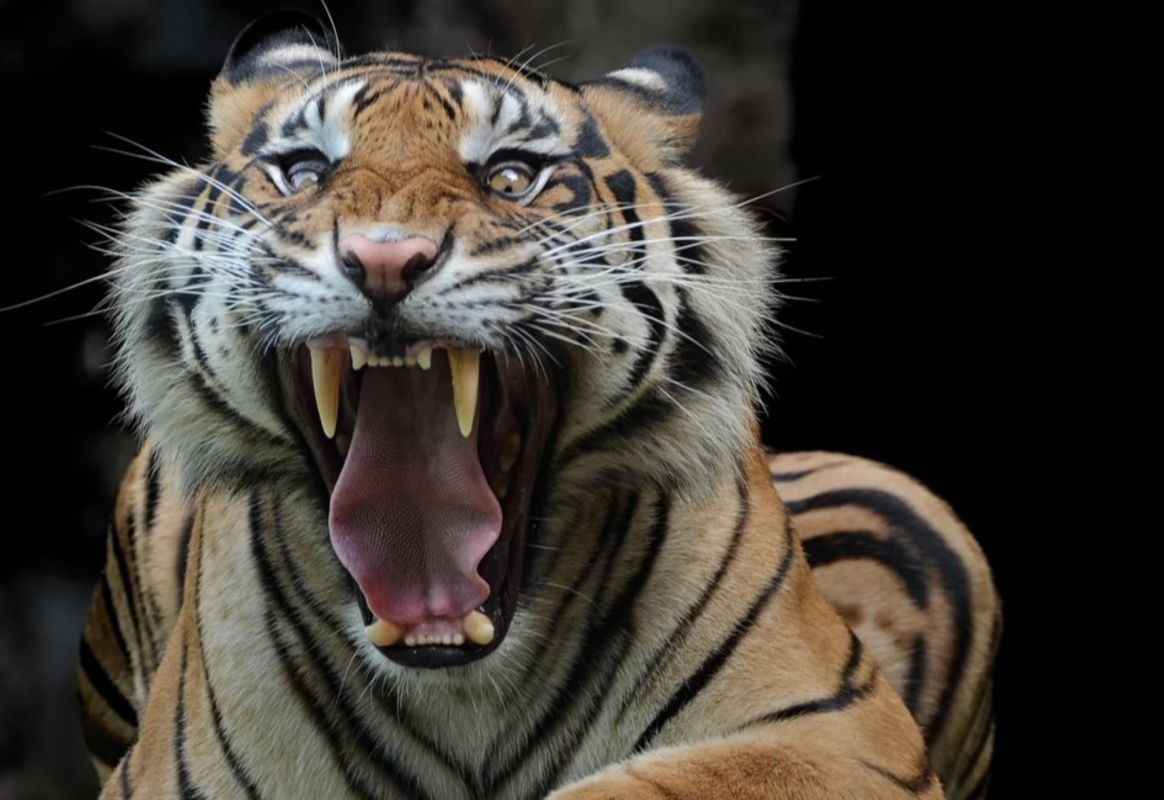With the help of 3-D printing technology, an innovative startup is preserving cultural traditions while protecting animals from being killed for their pelts, horns, teeth, and bones. Synthetic teeth and jaw bones offer alternatives to the wild animal parts used in the traditions of Indigenous populations.
As the Guardian reported, Nabam Bapu, an entrepreneur from northeast India's Nyishi community, the largest Indigenous tribe in the state of Arunachal Pradesh, was troubled by the hunting of rare animals for their body parts to be used in headgear and other traditional dress. Nyishi men wear elaborate handwoven caps called byopa, traditionally made with the beak of a great hornbill and with an eagle claw. The men also carry machetes adorned with the teeth of the clouded leopard or tiger.
In January 2020, Bapu joined forces with his friend Anang Tadar to devise a solution to preserve tradition without harming wildlife. Now, the two work together with Likha Nana — a history researcher and Bapu's wife — on creating synthetic animal parts through their startup, Arunachal Ivory and Ornaments.
"The tiger rules the jungle. The eagle rules the sky. Wearing their parts implies inhabiting their mighty spirit, protecting the people. It's a status symbol," Bapu explained to the Guardian.
"Finding a solution on how to keep our culture alive without killing the wildlife … prompted me to do research on how to offer an alternative by making replicas of such wildlife parts," he added in an interview with the Deccan Herald.
Over two years, Bapu and Tadar sourced raw materials such as synthetic resin, plastics, wood, and glass to create realistic-looking pieces that might be approved by the village elders.
"It is important to have the village elders check on their quality as only they can give the right approval," Tadar told the Guardian.
With a state that's home to 26 major tribes, per the Guardian, the government of Arunachal Pradesh strives to keep cultural practices alive in schools by encouraging traditional dress once a month for students, keeping wild animal parts in high demand. However, authentic animal parts are costly in more ways than one.
Startup companies like Arunachal Ivory and Ornaments offer affordable and ethical alternatives to wild animal parts for Indigenous communities. By bringing accessible alternatives to market, the company hopes to discourage poaching and illegal wildlife trade.
Bapu is confident that his organization and similar companies can make a significant difference in the plight of endangered species.
"Why not use technology for a greater purpose," he told the Guardian, "to save wildlife and restore cultural practices."
Join our free newsletter for weekly updates on the coolest innovations improving our lives and saving our planet.









